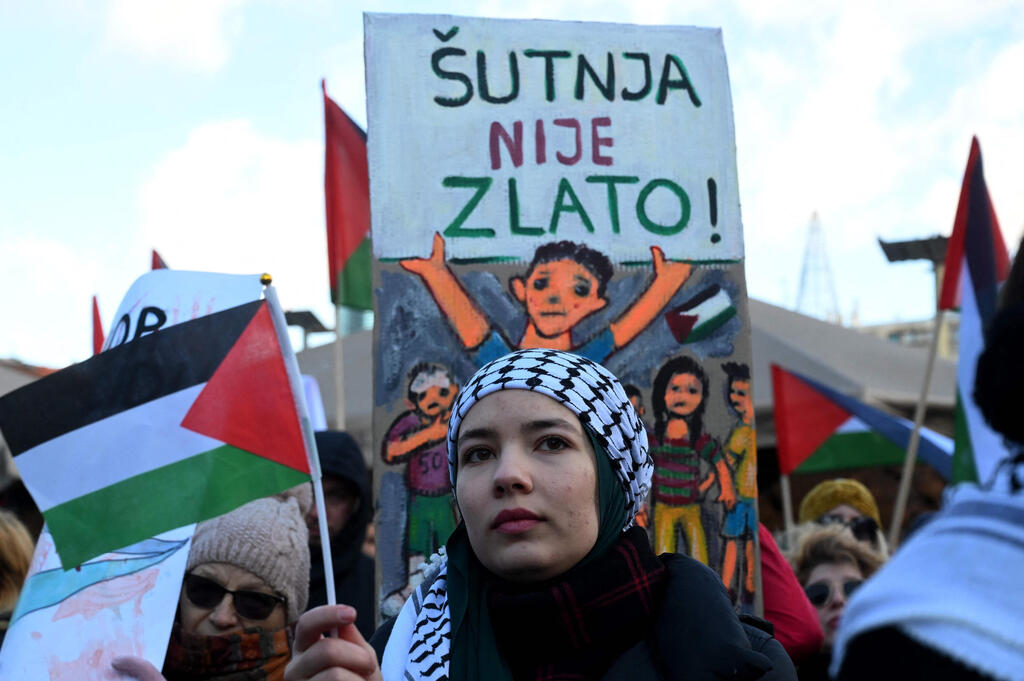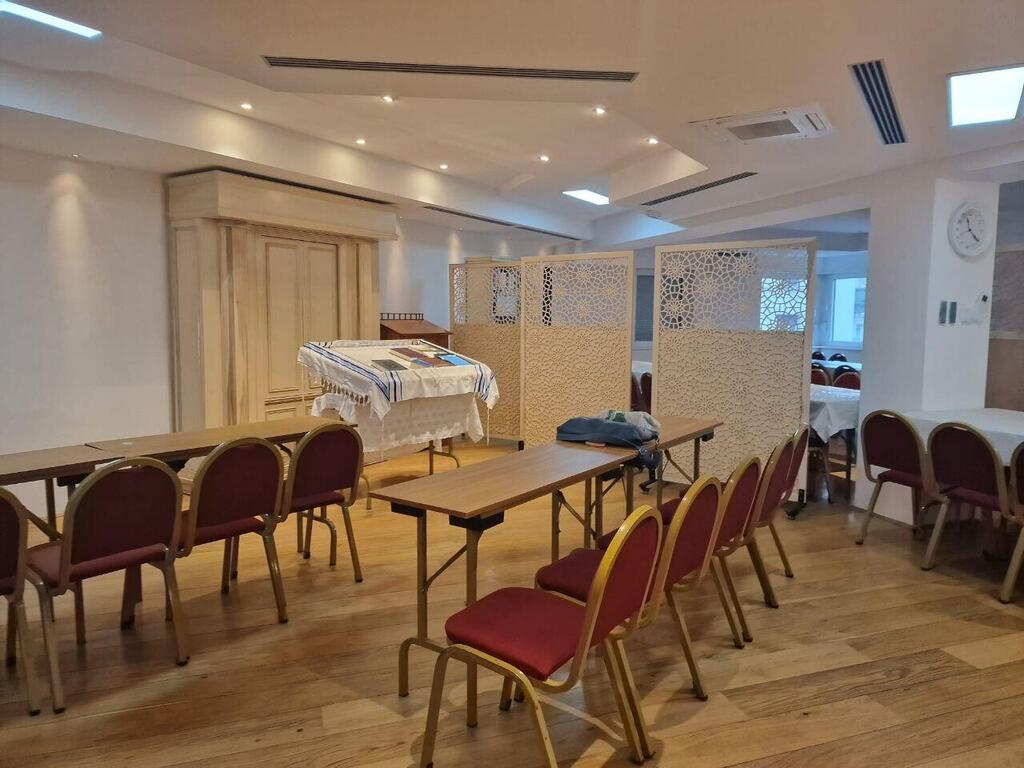Getting your Trinity Audio player ready...
Rabbi Pinchas Zaklos has dedicated over two decades of his life to revitalizing Jewish life in Zagreb, Croatia. The Menorah Zagreb Jewish center, which he leads, has grown into a vibrant hub of religious, cultural and educational activity.
Yet, despite its significance, this community faces a persistent challenge: the lack of official recognition that deprives them of government-provided security, leaving members feeling increasingly vulnerable.
The full interview
(Video: Yaron Brener)
Through letters to world leaders and relentless advocacy, Zaklos and his community are fighting to secure their future.
The Jewish population in Croatia, though small, has deep roots, with the majority residing in the capital, Zagreb. Over the years, Menorah Zagreb has become a lifeline for Jews in the region, providing a space for worship, learning, and communal connection.
"Every Friday night, we host 100 to 150 people for prayer and dinner," Zaklos shared. "Without our activities, this community would simply die. For 30 years after World War II, there was no rabbi here, no social occasions. When we arrived, we had to start from scratch."
And then came October 7
However, the events of October 7 marked a turning point. According to Zaklos, the community began to feel unsafe as pro-Palestinian protests and hostile rhetoric emerged on the streets. "People are afraid to come into the community," he explained. The problem is compounded by the Croatian government's refusal to provide security unless the community is officially registered as a religious entity.
Despite serving over 3,000 people, Menorah Zagreb remains unrecognized under Croatian law. "We followed all the necessary procedures to register," Zaklos emphasized. "But after a year and a half, we still haven’t received any response."
The lack of recognition not only limits security but also prevents the community from flourishing without fear. Zaklos described the stakes plainly: "If we won’t be here, this community will not be able to exist anymore."
Faced with inaction from the Croatian government, Zaklos and his community turned to international allies for support. They wrote letters to U.S. President Donald Trump and other global leaders, hoping that external pressure could compel the Croatian authorities to act.
"We sent a very clear letter asking for support," Zaklos said. "We believe that strong pressure from the United States and Israel can push the government to recognize us and provide security. Without this recognition, we cannot live a normal Jewish life."
The stakes are deeply personal for Zaklos. Under his leadership, the community has flourished, fostering new Jewish marriages, educating children about their heritage, and even inspiring some members to make aliyah to Israel.
"Many people have started learning about Judaism and tradition here," he said. "This isn’t just about security—it’s about preserving a community that would otherwise disappear."
Get the Ynetnews app on your smartphone: Google Play: https://bit.ly/4eJ37pE | Apple App Store: https://bit.ly/3ZL7iNv
Despite their efforts, the road ahead remains uncertain. Letters have also been sent to Israeli officials, including the Minister of Diaspora Affairs and the Foreign Minister, but meaningful action has yet to materialize. "Some of them have tried to help," Zaklos acknowledges. "But we’re still waiting for a real response."
For now, the Menorah Zagreb community continues its fight for recognition and safety, driven by a shared commitment to ensuring their survival. Zaklos remains hopeful. "With the right support, we can create a normal Jewish life here—praying, holding activities for children and students—without fear," he concludes.






